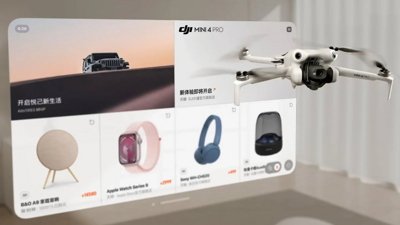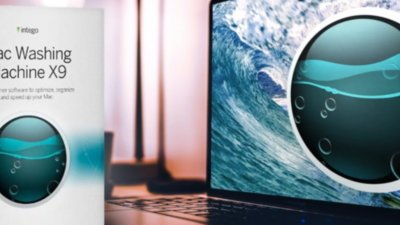Apple execs address Apple TV, iMac during event Q & A
The more personal setting of Apple's auditorium gave Apple chief Steve Jobs and other top executives an opportunity to sit down and answer questions about current hardware and future directions in the wake of its summer Mac event.
Despite selling nearly two-thirds of all its Macs as portables, Apple's product line still needs desktops for many users, according to Jobs. Desktops are still important: the extra size allows for faster and inexpensive parts as well as larger displays, he said. Many buyers also look to own two different systems, promising a "bright future" for the computer.
A multi-touch interface like that of the iPhone was off the table for the iMac and other systems, however. The Apple chief was "not sure it makes sense" for a computer and would not rule it out, but said that for now it would only be studied within Apple's engineering labs.
Discussion also shifted to the Apple TV and its relation to the Mac platform. Jobs again took charge of answering concerns and said his company would "have some news" for the media hub soon but that a Mac-focused event was not the place for discussion.
The prevalence of Google in Apple's new iLife suite for certain features, such as AdSense ads built into iWeb sites, was also addressed in an indirect fashion. Jobs contended that Google's "back end services" were appealing and were being integrated into Apple software, and that the respect was mutual from the search engine giant.
The tone of the question and answer session was also characterized by direct jabs at the Windows PC market's budget-conscious design philosophy. Schiller in particular addressed the long-standing question of why Apple had not once used the Intel logo; everyone already knows Macs use Intel chips, he said, and there were far too many stickers and labels on most Windows computers. Jobs also emphasized that Macs were designed to be easily recommended and that this meant including features many other companies would leave out.
"There is some stuff in our industry we wouldn't be proud to ship. We can't ship junk," he told the gathered press. "We want to make the best personal computers in the industry."
 Katie Marsal
Katie Marsal










 William Gallagher
William Gallagher

 Malcolm Owen
Malcolm Owen
 Amber Neely
Amber Neely



 Sponsored Content
Sponsored Content







